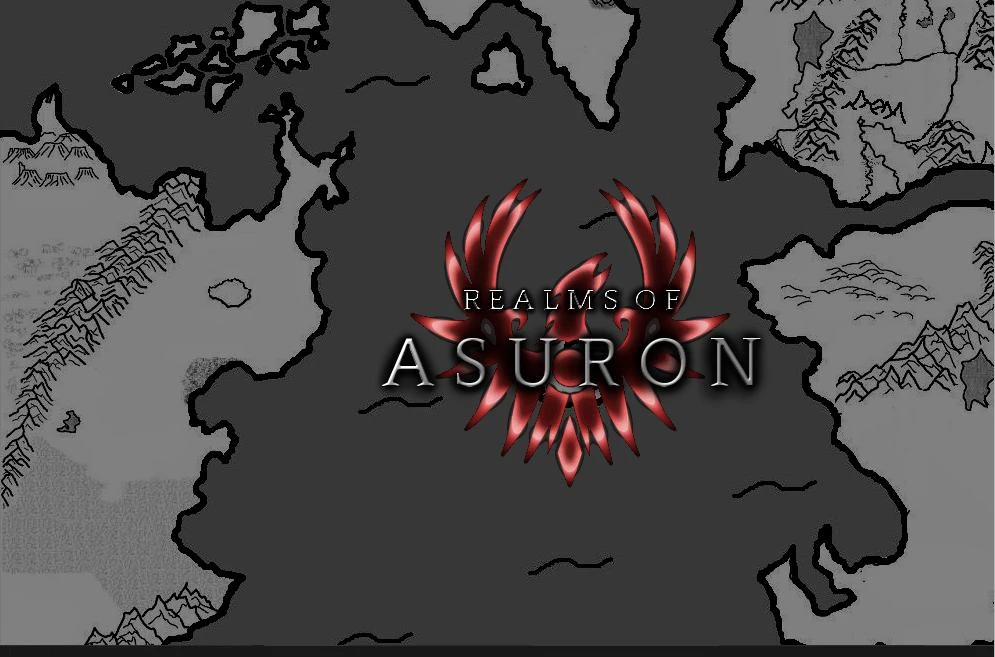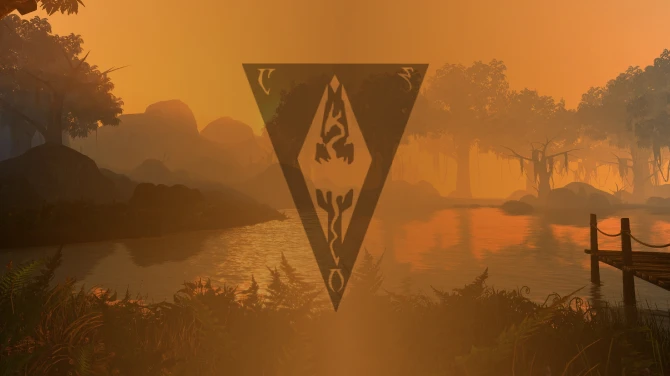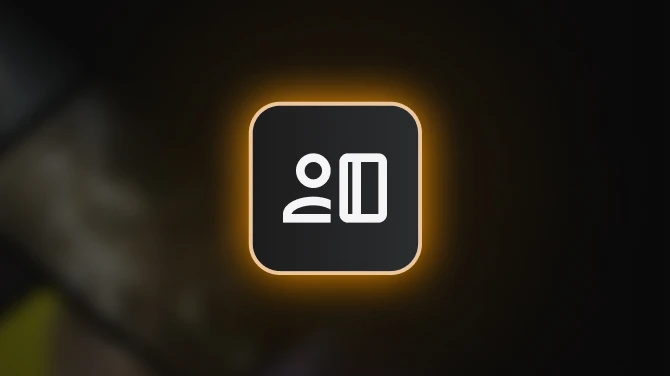
About this image
"Story" and "Free-Roam" Modes:
So I have decided not to follow through with the pre-defined character concept... not immediately anyway. Right now, I am developing Realms of Asuron as a true open-world RPG (without a main questline). Yes, I very briefly deviated from that with the presentation of the pre-defined character concept (Rowan), but I have since turned around and decided that the free-roaming nature of the mod should continue to be its most signature trait. The character of Rowan and his/her entire story will be told at a much later date, released as a mod of the mod -- not as a mandatory expansion, but more like an optional 'companion' file. I ultimately feel like this is the best approach, since I do want Rowan's story to eventually be told (and, being a writer, I would absolutely LOVE to have a canonical "campaign" developed in cinematic fashion). In focusing on "sandbox" content first, we establish the basic foundations of the world in which Rowan will be exploring. We buy time for learning new things about the CS and our own personal capacities. We can build Asuron first, learning new techniques and improving upon them all along the way. At the same time, players will be allowed to experience the Realms as they are created. By setting content for imported/newly generated characters as the first priority, this means that the Story mode will have more time to be properly developed, and, in the end, everyone is happy.
-----
Character Importation/Combat System:
Regarding the importation of characters from Oblivion, I am currently in the process of writing a short quest that will get the player character from Tamriel to Asuron in a manner that is as believable as possible. Solutions to the problem of entering the world of Asuron "overpowered" are currently being investigated. If a script may be developed that forces the player's skills and attributes to a pre-determined rank upon entering Asuron, that would be best. If anyone can offer a detailed blueprint for a script of this nature, or perhaps offer an alternative, I am willing to hear it. I would ultimately prefer not to have Oblivion's level scaling carried over to RoA however. If all else fails, then I will use it, but, even then, I will attempt to dwarf its effects as much as possible. Oblivion's character progression system really damages the overall atmosphere of RoA. The theme of my mod is survival. It's about relying on instinct and instinct alone. My proposed design will promote a greater reliance on more "human" factors.. specifically, your unique ability to detect strengths and weaknesses in real-time. The idea of "levels" and "ranks" discourages that theme, and promotes a greater reliance on "non-human" factors like skills, attributes and damage values. RoA aims to keep players away from menus and number crunching as much as possible. It aims to be a game that can only be played by humans.









6 comments
For now, I have decided that Realms of Asuron will continue to abide by the rules of Oblivion, but I am really going to try and do everything I can to slow down the leveling process until I have determined exactly how to stop leveling altogether (i.e requiring the player to engage in actual real-time training with trainers in order to increase skills.. removing skill books.. possibly implementing an XP system and then making sure XP gains are low). I'm not even sure if the Oblivion engine will support the sort of "Zelda-inspired" combat system I'm wanting, so yeah, at this point, I will only implement what I know I can do.
I admire your suggestion for "dynamic" attributes, which increase upon use of their governed skills, and decay upon the opposite condition. Very fascinating alternative, and a far more realistic one in my opinion. I will definitely look into some kind of spell effect that is capable of fortifying a governing attribute after every skill increase while damaging other attributes that have not experienced a skill increase in 'x' number of days. Working in tandem with this "delayed leveling" approach, such a system may prove very effective, further mitigating the aliasing you described. Thanks again for giving me so much to think about
Everyone has their own superiority complex (eliteism). However we are talking a human pathological behavior to focus purely on self (IE look at me). Rewards and punishments is a good term. For rewards and punishments I always prefer subtle effects. If you have dieties in your game one can gain subtle bonuses for doing the right things (to gain such bonuses) the trick is to not let them know they have said bonus for example. Lets say you rescue a cat (neko!) and the diety of cats now gives you a slight bonus (for example you can see somewhat batter at night) as you continue on the path of "neko" your night vision and clarity of vision increases however their might be a negative aspect as well your color gamat gets reduced. This might be subtle at first but latter one very pronounced (depending on how big of a "neko" effect you gain).
I've been thinking about choice affects often these are massive in most RPGs. You may wish to approach it in a different fashion although 'bias' terms are OK they can be somewhat overly simplistic. So you may considered hidden weighted terms that are slowly influenced by the actions. I suppose the most obvious description is "nueral network" you don't become best friends with someone you just met. Let alone do you trust them implicitely, that's human nature so likely the characters you have being interacted with should not either. Their is no real gauge to how things will turn out for how things might turn out. This could create some difficult to create behavioral changes. Oblivion and Skyrim go by a simple point system with a preallocated group of people for whatever 'behavior' is being worked with.
In Skyrim it's surprisingly difficult for your character to advance to any degree of power in destruction magic. It's useful however. In fact it requires a lot of combinations of tactics to make good use of destruction magic. Unfortunately the NPCs aren't nearly as limited, I've died numerous times at the hands of some crazy necromancer freezing my behind off with 3 seperate raised 'helpers' beating on me. Or a whole group of bandits attacking me from no where (it seemed at the time LOL). I seem to have gravitated to being a sneaky archer in Skyrim so my "helper" runs in front of my arrows (mutter) all the time (sigh).
Perhaps a more natural developement instead of leveled developement. For example strength comes from repetition and rest ditto for magic etc. So you won't "level" but instead as you use specific attributes they will begin to strengthen slowly (small amounts) unused attributes more slowly weaken. The bottom line is this causes "aliasing" or a stair step affect of jumpy developement. A more suibtle approach can be aquired a bit over time. It's a bit rediculous for someone to have 200 health 400 mana and 200 stamina in only 100 days in character without sleep or rest. I think it's OK to do this more subtly.
A tough nut to crack however is 'limits' IE how long under water where can you jump, climibing etc. Perhaps developement the ability to do these things (as part of the character) can make the game fun?
Anyhow glad I helped you with your thoughts (I'll go and try to find mine now hehe).
Ciaphus
You might be able to preserve the character by making a clone of it in Asuron (IE it becomes unique to Asuron) then nuke all it's abilities. The big problem wih "survival" is it's frustrating. Just warning you ahead of time. I have only liked a few survival games. For example if the same enemy is problematic to your character throughout the game one feels like they have nary acomplished a thing. That's the reason oblivion has scaling.
Erstwhile their are different ways to acomplish things, I ussually think of the system as reward and punishment. Dark Souls has an interesting system, you die you loose everything. This puts the 'retry it different ways' tactic (my favorite sadly I like to find out how many ways I can die).
I FF10 one 'scaled' up the character through a sphere grid system (you got to choose which way it went sort of). FF7 was more a normal level system but with things you could level you equip (materia) that was kind of different and I liked it (for it's own reasons).
You may wish see how RE and RE2 worked. As I remember they didn't have a level system either. I know RE4 did sort of but you got better weapons etc. Skyrim is fun to an extent the way they have it but the alchemy system is .. crazy? Yes crazy (you can do a lot of strange things). I like it but at the same time it can be kind of annoying (always out of stock when experimenting heh).
As for instinct, what is instinct to one person may not be too another. If you have classes you may wish to set things up based on the class so that a person who is a good strategiist but has lousy reflexes can play for example (me).
Anyhow be patient, I suggest dare I that you do stupid simple tests of different systems on people with different view points than yourself. This way you can get a larger audience than say "hack and slash" vs "sneaky bastard with a knife" .
I am not good at combat games my mind reacts but my body does not so coordination is a tad annoying often too me. (parts of Start Ocean THE LAST HOPE were really difficult for me as a consequence as the bosses entirely relied on something that required a lot of coordination to even use).
If all else fails "this RPG isn't for everyone" is just as good of motto. Fallout 3 I avoided for a year cause it looked like it wasn't much on the RPG at all (sad I know) I thought it was a shoot em up (linear freaking plot) game. Honestly forcing people to do what YOU want is really annoying.
Bethesda has handled that issue rather beautifully in Daggerfall Morrowwind Oblivion and Skyrim. Even Fallout3 and New Vegas. You don't need a level system but you probably should consider rewarding them on ocassion. Repetition for naught is a sure fire killer I've found "Dragon Age 2 was a bit like that for example by not exactly following in the originals foot steps too well. I don't mind fixed companions (all of the ES series has em) but I do like randomly generated ones. Heh.
If you played Vagrant story that was an interesting game system. Lots of ways to do things I guess (as long as it's not a 'dress' system like FF10-2 LOL).
The primary reason for my animosity towards the concept of "levels" is born of the fact that I know that the existence of ranks and tiers in any system leads to inevitable capacities. Elitism, for lack of a better term. MMOs suffer from this terribly. I like the way you described rewards and punishments. I would definitely like to look into different rewards than what are presented in the form of "levels" and "ranks" in this and that. Instead, perhaps emerging victorious means being able to skin the animal for meat/hide? Or maybe it means giving its designated 'prey' (i.e. deer) a chance to replenish its numbers? Or, if the enemy is humanoid, specifically a soldier, being able to secure a portion of that soldier's faction's territory? These are rewards that establish a feeling of progression without having to mark capacities.
Also, exactly as you stated, I would prefer to have a design that tests player choice, not player coordination. I suppose "adaptation" might have been a better word to use than "survival"..? That said, a game design made up of more passive skills than active skills makes for a game that is easily exploitable. You can have this enormous tree of passive player choices, but someone is eventually going to get it down to a science, and with its guts all fully known and exposed, people lose interest very quickly. You can also grant the player an enormous repertoire of active skills, but then you get an insane arcade-fighter-style design that may stress the player out with all its emphasis on speed and execution, and give them carpal tunnel syndrome at an early age
The ideal combat system then, in my opinion, would be rock-paper-scissor inspired, with only a few active skills -- chop, slash, thrust, for example, and then some kind of 'wide arc' attack for crowd control -- and a few passive skills -- furthermore, passive skills that came with negative effects in addition to positive effects, and of which could be turned on and off as the player enters different combat situations (stances? auras?). Then throw in a bow for ranged attack strategies, and include a bunch of spells designed for solving different types of puzzles. If spells are to be implemented in combat, I think it should require a lot of attention by the developer, lest they totally overpower the other combat styles. Every weapon class should do the same amount of damage, but with bonuses/penalties against varying enemy types. And spells should be geared more towards doing interesting and 'tactical' things in combat, like forming distractions, etc. (In TES, for example, I always felt like the Destruction school of magic was massively overpowered because you could take advantage of enemy strengths and weaknesses to a ridiculous degree, but that's just my personal experience. Never really, truly experimented with Destruction magic in Skyrim though.. Maybe magic is more difficult to exploit since previous titles?)
In conclusion though, I think it really is a matter of finding a balance between the two: between passive, long-term strategic elements, and active, short-term strategic elements. Unless what you're trying to market is a strategy game or an arcade-style game. In that case, build whatever fits the niche, I think. For RPGs though, that's where things get blurry, and the greyness of the genre is probably what makes it so frustrating. RPGs are like a hundred game designs mashed into one. I mean, with TES, Bethesda had the challenge of not only having to develop a combat system, but a lockpicking system, a sneaking system, an alchemy system, a dialogue system.. even just moving a character around in a three-dimensional space might be considered a system all its own. So, I think, there is a real challenge in developing a true combat system for an RPG because an RPG doesn't really have a specialisation. It's all about balance, and that's something I'm hoping to achieve -- or at least come close to.
Ah, and I'm absolutely with you on randomly generated companions!
Anyway, it's just great to hear someone else deliver their insights on game design